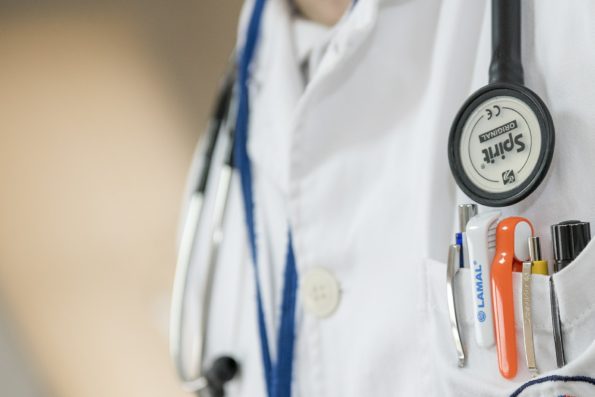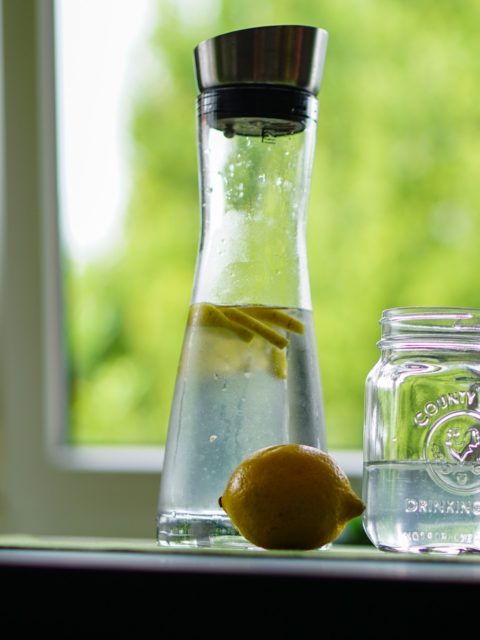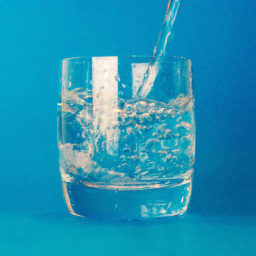 I have always been intrigued by nature. My interest led me to take a horticulture class while I was in college. One sunny afternoon our professor took us on a stroll through the campus gardens and greenhouses. Most of what happened next is a blur because, all of a sudden, I blacked out. I faintly heard people shouting something like, “She’s on the ground. She needs help.” Yet, I couldn’t open my eyes completely, move my body, or say a word. I saw intermittent flashes of black and white. My body was weak and limp, and I felt extremely heavy. Even though I was borderline unconscious, I felt the people helping me up from the dirt. Then, someone led me to the campus hospital.
I have always been intrigued by nature. My interest led me to take a horticulture class while I was in college. One sunny afternoon our professor took us on a stroll through the campus gardens and greenhouses. Most of what happened next is a blur because, all of a sudden, I blacked out. I faintly heard people shouting something like, “She’s on the ground. She needs help.” Yet, I couldn’t open my eyes completely, move my body, or say a word. I saw intermittent flashes of black and white. My body was weak and limp, and I felt extremely heavy. Even though I was borderline unconscious, I felt the people helping me up from the dirt. Then, someone led me to the campus hospital.
While being seen by the campus hospital staff, I started to slowly regain consciousness. Neither I nor my caregivers were able to pinpoint what caused me to pass out. I was asked a series of questions about the food I had eaten that day and drinks I had. A number of tests were given to check all the possible problems. It turned out I was suffering from hypoglycemia (low blood sugar) and had to consult with a dietician, who determined I was severely undernourished and dehydrated. I admitted to her that most of my mornings started off with a cola, chips, and a cinnamon honey bun. I pretty much ate whatever I wanted, whenever I wanted. I only drank water when I was really thirsty. My body was breaking down and I didn’t even know it.
 The dietician gave me a nutritious meal plan to follow. She told me to get plenty of rest and drink more water. As I followed the instructions, I began to see a dramatic difference in my health. To this day, water remains my top beverage of choice.
The dietician gave me a nutritious meal plan to follow. She told me to get plenty of rest and drink more water. As I followed the instructions, I began to see a dramatic difference in my health. To this day, water remains my top beverage of choice.
“All living things must have water to survive. Without water, your body would stop working properly.” -www.kidshealth.org
Why is water so important to our health?
Our body weight is made up mostly of water. You can only live a few days without drinking water. The body needs water to help it do many important things. Your blood consists of a large amount of water and delivers oxygen to each cell in your body. A lack of oxygen can cause the cells to die and your body would no longer work. There is also water in lymph, your immune system fluid, which acts as an illness defender.
If we do not drink water regularly, our bodies becomes like clogged pipes or a toxic wasteland. Water helps you with food digestion, and it also works with the body to get rid of waste. It basically flushes out our bodies and cleans our blood. It also helps reduce excess fat, sodium, bloating, and swelling. Drinking water with meals is common, but your body needs plenty more water throughout the day especially when you are active. Although all liquids contain some water, pure water is the best choice. Fruits and vegetables have a lot of water too.
What happens when we don’t get enough water?
Several years ago, my family traveled to my old college town to attend a funeral (the same place where I passed out and also where my husband and I met). While we were getting dressed for the service, my husband suddenly began to experience unbearable pain in his side, cold sweats, and uncontrollable heaving. He tried to drink water, but he couldn’t keep anything down. He was in such agony and was unconsolable. I had never seen him like this before. Our two young children began to cry because we didn’t know what was happening. Instead of waiting for an ambulance, I immediately decided we would just drive to the nearby hospital. As we were driving to the hospital, my husband couldn’t be still in his seat. He was moaning and groaning and holding his side. I called his parents and broke down in tears while trying to tell them what was going on. I told them we would keep them updated. In my mind (and our children’s minds), he looked as if he were dying right before our eyes.
When we arrived to the hospital, the emergency room was full. We checked in and were told to wait and it seemed like forever. My husband was going back and forth to the restroom. He felt the sensation but nothing was coming out. I encouraged him to try to drink some water again so we bought a bottle from the vending machine for him to sip on. As time went on, his pain and symptoms started to slowly subside. Eventually, his name was called. A number of tests were administered, which meant we had to wait again for the results. After some time, the results came back. The finding: kidney stones. My husband asked, “How do you get them and what do you do to avoid them?” The answer: How? Not getting enough water. How do you avoid them? Drink more water. Of course, it was a relief for all of us as we got confirmation he was not about to die. But, then we thought, that’s it?! Wow! I immediately thought back to my blackout situation and was reminded of the same message I was given. We understood, loud and clear, why we cannot underestimate the importance of water.
You become dehydrated when your body does not get the water it needs. When you are thirsty, your body is craving water to replenish or replace the water it had used up in activity or waste. It says, “Hydrate me. I need a drink!” If you wait until you are thirsty, then you have already gone too long without it.
Dehydration negatively affects your body’s ability to function at its best and can eventually make you ill. It can lead to fatigue, allergies, high cholesterol, kidney issues, bladder problems, low blood pressure, and cognitive function.
An article on NewHealthAdvisor.com details the other effects of insufficient water intake include:
- Imbalance body temperature
- Chemical imbalance
- Constipation and digestive problems
- Stomach ulcers
- Joint pain
- Reduced muscle mass
- Hunger pangs
- Premature aging
How much water do we need? There is really no set number considering our bodies are made differently. If you research it, you will find a variety of opinions, calculators, and formulas. The method that has worked best for me is the water intake calculation based on body weight. Here is how to calculate the water intake based on this method. For each pound of body weight, you drink a half ounce of water. The formula is 0.5 ounces x Body Weight in Pounds = Daily Fluid Intake in ounces. For example, if a person weighs 170 pounds, they would drink 85 ounces of water per day. As I said, this process has worked for me. And if my activity level increases or immune system is challenged, I increase my water intake as needed. Remember, you need to find out what works best for you and your lifestyle. Just get a plan, and stick to it.
What do we need to know about water filtration and enhancements? I’ve heard some people say “Water doesn’t taste good.” They either say it doesn’t taste like anything or they prefer flavored or carbonated drinks instead. Depending on the source, tap water can be downright unpleasant to the taste and reek of strange, chemical odors. But don’t let this be an excuse for you. There are many quality water filtration options on the market including portable glass or steel filtering containers, pitchers for your home refrigerator, refrigerators with filtered water, and faucet or undercounter attachments.
Water does its best work in its pure state with no additives. Take caution before using prepackaged flavored waters and powdered flavor packets, which might contain artificial sweeteners and extraneous additives. To enhance the taste of water naturally, you can occasionally add fruits, vegetables, herbs, and herb tea bags.
Most importantly, we have to see water as more than just a clear, flavorless liquid. We have to start seeing it as the drink of life – the way to purify, nourish, refresh, build our bodies and our health.

Leave a Reply